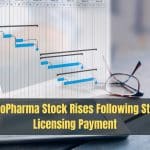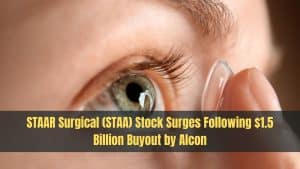Reviva Pharmaceuticals Holding Inc. (NASDAQ: RVPH) stock jumped by 101.39% at the last trading close whereas the RVPH stock price declines by 15.86% in the after-hours trading session. The decline could be attributed to profit taking. Reviva is a clinical-stage biopharmaceutical corporation focused on discovering, developing, and commercializing next-generation therapeutics for disorders that have unmet medical needs that are burdensome to society, patients, and their families. Reviva’s new pipeline works on disorders of the central nervous system, immune system, and metabolism.
Top 5 Tech Stocks to Buy in 2024
Don't let the chaos of rising interest rates, potential recession, tighter credit issues, higher oil prices, and incessant geopolitical issues chase you from the markets. Instead, just wait it out. With too much fear in the market, go bargain hunting with tech stocks. We have complied a report with the five of the best ways to profit within this industry.
"Top 5 AI Stocks to Buy in 2024."
Click here to sign up for our free report & newsletter, plus bonus offer "Elon Musk just Tiggered a BOOM in These Stocks"
Sponsored
What is happening?
RVPH announced the results of its Phase 2 clinical trial for its main drug candidate, RP5063 (brilaroxazine), for Acute Schizophrenia on April 26, 2021. Brilaroxazine’s pharmacology profile against core serotonin (5-HT) and dopamine (D) receptors is special, according to Reviva, and it can be used to modulate and regulate the D/5-HT mechanism. Brilaroxazine is pharmacologically distinct from other antipsychotics due to its mix of potent affinity and selectivity for target receptors involved in schizophrenia and its comorbid effects (5-HT1A/2A/2B/7).
Brilaroxazine reached its primary outcome in a randomized, double-blind, placebo-controlled, multicenter Phase 2 study in 234 participants with acute exacerbation of schizophrenia or schizoaffective disorder, which was a decrease in combined Positive and Negative Syndrome Scale (PANSS) at the conclusion of care from baseline versus placebo. Medical, lab, body weight, prolactin, lipids, fasting glucose, and EKG protection endpoints were all reached by the drug nominee. The PANSS overall score was lowered by 20 points, indicating a statistically meaningful change in treatment from the placebo.
Chief Executive Officer, Laxminarayan Bhat, Ph.D., commented that:
They agree on the fact that there are currently no treatments that effectively resolve the dynamic combination of positive effects, depressive symptoms, disposition, and cognitive dysfunction associated with Schizophrenia, which affects around 3.5 million individuals in the United States and 20 million worldwide. But RVPH’s positive phase 2 clinical results and the ability of their drug candidate to overcome significant unmet needs associated with existing therapies excite us greatly.









